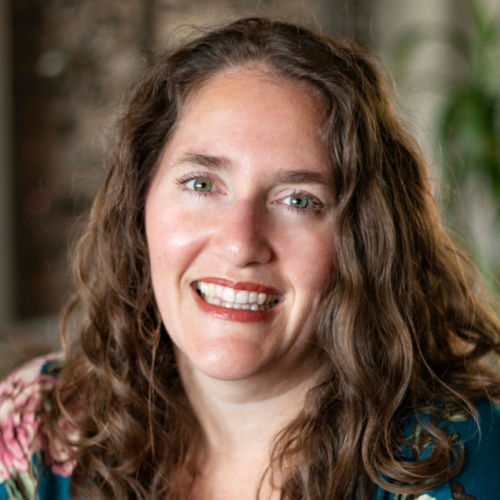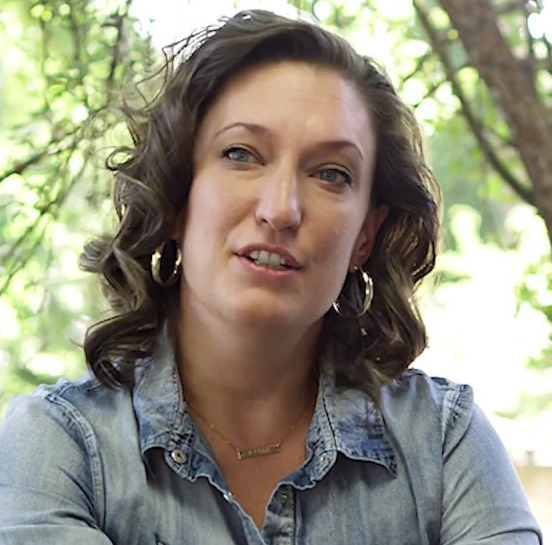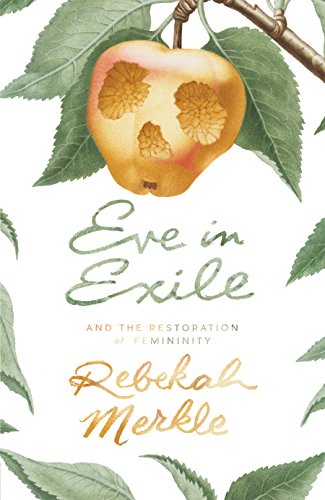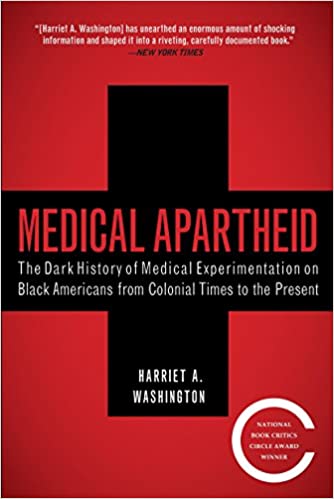SS #114 – A Well-Educated Daughter (with Rebekah Merkle!)
We know the college scene these days is not healthy, and it’s also ridiculously expensive. Yet it’s the default path we tend to set for our high school graduates.
The boys, we think, need to go to university in order to get careers so they can provide for a family. Should our girls also get career-oriented degrees as “insurance” in case they don’t get married or end up needing to provide for a family? What if our girls are not the types to pursue higher education in liberal arts?
What options can we prepare for and present to our girls that will help them continue their education in healthy ways, whether or not college is involved?
Rebekah Merkle joins us today to talk about “finishing school” options for our graduating daughters.
Listen to the podcast:
TUNE IN:
Apple Podcasts | Spotify | Stitcher
Higher Education for Girls
Today’s Hosts and Source
Today’s Guest: Rebekah Merkle
Rebekah Merkle has dabbled in a number of occupations ranging from manning her own clothing label to designing her own fabrics to becoming a full-time high-school humanities teacher. Her designs have been featured in a number of magazines, she has written the books Eve in Exile and Classical Me, Classical Thee, and she has edited a Brit Lit curriculum for Canon Press. However, her proudest accomplishment is her crew of five outrageous, hilarious, high-speed teenage children, and her favorite role is that of wife to her similarly outrageous, hilarious, and high speed husband, Ben Merkle, who serves as president of New Saint Andrews College. She co-hosts the podcast What Have You with her sister Rachel.
“Because we women are the glory, it makes sense that we tend to be preoccupied with glorifying. We do this innately and without even having to think about it, in the same way that our bodies can create another human inside of us without us having to stop and read a manual about how to do it. God created us for this purpose, and we beautify and we glorify constantly. Sometimes we do this in obedient ways, sometimes in rebellious ways; sometimes we revolt against our innate desire to do this at all, but this is a deeply ingrained trait that God has built into womankind, and it just can’t be completely smothered.”
Rebekah Merkle, Eve in Exile and the Restoration of Femininity
Also, check out Rebekah’s fun designs to liven up your kitchen!
Scholé Every Day: What We’re Reading
Kristin Lavransdatter, Sigrid Undset
Mystie’s book club is reading this novel about the devastation sin causes, while recognizing the innumerable opportunities for repentance we all have.
Down the Garden Path, Beverley Nichols
Rebekah just finished rereading this gardening classic.
Sissinghurst, Vita Sackville-West & Sarah Raven
Bekah’s second pick in her category of “Gardens created by messes of humans.”
Medical Apartheid, Harriet Washington
Brandy finishes out her medical controversy genre for the year.
We need to be more than anti-feminist
Simply reacting to modern feminists and defining ourselves in opposition to their positions is not the same as having a Christian understanding of femininity. Biblical principles
Going back far enough
The purpose of the land-grant government universities was to use the wealth of land in our young country to train up young people in the useful arts, as opposed to the liberal arts. At this time, education came to be seen as training for a job rather than the development of a certain kind of person.
The land-grant universities named degrees after jobs. The older method of education formed habits of the mind.
This concept of education cheapens education.
Daughters will not have a similar career path as sons, so if education is job training, then of course they need a different kind of education.
However, if education is the shaping of the mind, if education is in the liberal arts, then both boys and girls will benefit from that education, regardless of what they do with their work later.
The liberal arts are for both boys and girls, sons and daughters.
Often the best way to get the training you want for a job or a skill is to go directly to getting job experience rather than a degree for certification.
The pitfalls of sending girls away to college
The college years are still formative in a young adult’s life. It is not true that a solid K12 education sets the stone and makes our kids – boys or girls – solid enough to withstand the influences of a state university education.
Our identity is often actually set in our late teens and early twenties, when we are also making life-path decisions. The setting we live in during those years is formative and significant to the trajectory of our lives.
Our expectation needs to be set on something more solid than whether or not the college has a good football team. The landscape of the college campus has changed dramatically, so we need to be willing to think outside the box.
What about opportunities for daughters who do want to do work that requires a university program like nursing? We need to be sure they’re prepared for the reality of the situation – and even that we know the reality of the situation, instead of going in blind and assuming it will all be fine. Is your kid – boy or girl – is not ready to be opposed in their Christianity, they probably aren’t ready to be on a university campus.
What about girls who are not college-bound?
They can have an adventure! There are many ways skills can be built without signing on the the university model.
One of Rebekah’s twenty-something daughters is currently in England at a Courdon-Bleu Cooking School, with no intention of using that skill to start a career or earn a living, but rather to build up skills – including doing hard things in challenging environments – to serve her family and community.
Have you swallowed the feminist lie?
Should girls who want to be homemakers stay at home and help their own mom with chores and meals? Does being a homemaker require anything more than that?
Assuming you can go from being mom’s chore-girl to a skilled homemaker is swallowing the feminist’s lie about homemaking – that it is only for the unambitious, the underachievers. The feminists say anyone can do homemaking without any thought or development needed and the “stay at home daughter” concept pretty much agrees with the feminists. It simply says, “Yup, and we like it that way.”
However, homemaking is a significant role that demands more of us than simply knowing how to do laundry and roast a chicken. Developing skills and wisdom and accumulating experience in a variety of responsibilities serves a future – and current – homemaker well.
If you want to embrace homemaking, you need to embrace the significance of the calling. It’s not something any ol’ underachiever can excel at.
Rebekah Merkle
Should girls prepare for careers?
If you want to be a lawyer, do you go to school to become a dental assistant, work as a dental assistant, and just wait for someone to ask you to represent them in court before you begin training to be a lawyer?
Why do we do that with homemaking?
You want to do work that will increase your ability and capacity for the responsibilities of wife and mother so that when you arrive there, you’re ready for it. We don’t want our daughters – like many of us – to show up and have to learn everything on the job after preparing and practicing a totally different path for years.
If you want to end up as a homemaker, don’t go the opposite direction until God gives you the position.
There are so many skills involved with homemaking and so many of them that can be done excellently. Pick one and really go all in with it.
Homemaking is not cookie-cutter. It’s not one look. There are so many possibilities. Throw yourself at a possibility or two and try to get really good at it.
Make the most of the opportunities you have and get on the path, getting good at the things that you know will help you out.
“Just” a homemaker?!
Being a homemaker is not a waste of an opportunity
It is not a shame that we have wasted ourselves, our abilities, in the home rather than spend ourselves on a 9-5 job. It is not a shame that we work with and for our husbands rather than for a boss for a paycheck.
There are enough Christian women living and working as homemakers. If we would simply capture the vision for the glory of the role, it would be transformative in the society at large. It has been women who dismantled Western society. Women could build it back with the proper vision, with their eyes on Christ and truth rather than the world’s opinions and lies.
In any war, you don’t see one side spending huge amounts of time and money on a site that is not strategic. The battle for the attention and energy and hearts of the women has been intense for the last century. That is because homes are where the gospel is potent and where the gospel is most effectively spread. The world has spent considerable focus in taking down the woman’s role in the home. It matters. It is strategic. It is worth defending because it is so significant.
It takes women to have a culture.
A woman’s power lies in being an excellent woman, not in being a second-rate man.
Men by themselves can have a club or a business, but not a culture. Women take the work of men and transform it into home, into beauty, into culture. The more we step up to the work we’re called to, the more transformative we can be.
A paycheck is not the vindication for the value of our work.
Mentioned in the Episode
Listen to related episodes:
SS #62: The Scholé Sisters Go Liberal (with Ravi Jain!)

Want to talk about the ideas presented here? The conversation is happening inside Sistership.
Podcast: Play in new window | Download












